6 Best Miso Paste Brands For Probiotics
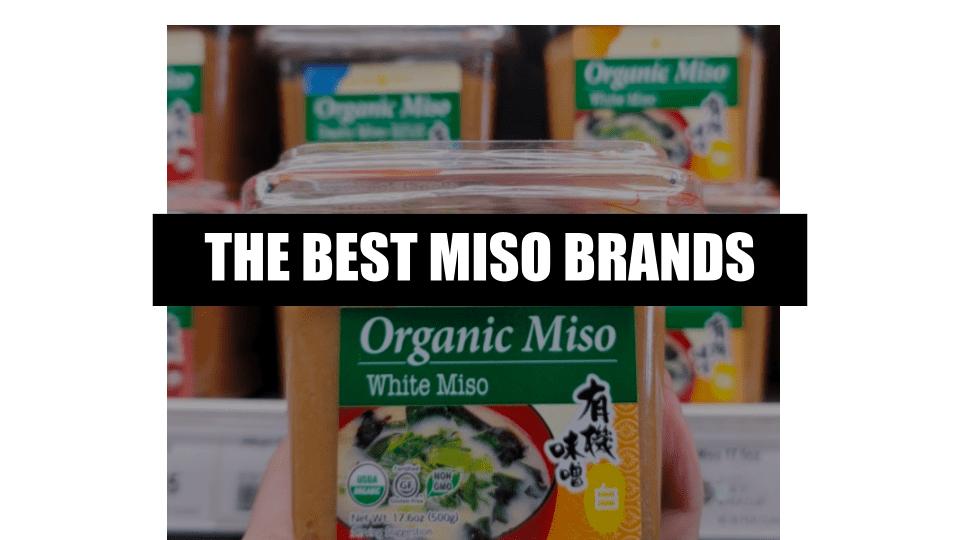
Miso paste is a traditional Japanese seasoning that has gained popularity worldwide due to its delicious umami flavor and probiotic benefits. With so many brands available, it was challenging to choose the best one.
I have compiled a list of the six best miso paste brands and in this this blog post, I will share my personal experience as a certified nutritionist trying various miso pastes to bring you a comprehensive review of each brand's taste, texture, and ingredients.
So, sit back, grab a bowl of miso soup, and enjoy!
6 Best Miso Brands 2023
1) Miso Miko Brand Soybean Awase Paste
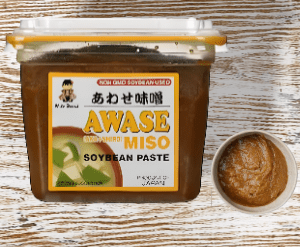
This red and white miso in my opinion is the most flavorful and best tasting from my personal testing. With this paste, you can make the most delicious miso soups that aren't too salty. They are rated 4.6 out of 5 stars with 1950+ genuine US customer reviews.
One spoonful of Awase Miko Brand Miso Paste dissolves easily in warm water and provides a sweet and mild flavor for soups, stir-fries, seasoning, and noodle dishes.
This paste contains Water, soybeans, White Rice, Alcohol, and Bonito which is a type of mackerel fish so it's not suitable for vegans. It is however gluten-free, dairy-free, and non-GMO since it contains no soy sauce or dairy.
The only negatives I can mention are that if you live in a hot climate this paste may melt during delivery but it should still be edible. At $9.99 / $0.52 per ounce, I think the price is fair for what might just be the best miso paste.
2) MisoBoom Miso Soybean White Paste
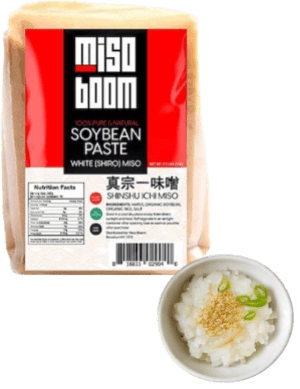
I was close to placing MisoBoom Miso Paste in the number 1 position and maybe on another day I would. I can't fault the flavor of this miso paste provided you get the right paste.
There were a lot of issues with customers receiving dark brown paste when paying for white/red paste and I found the miso paste quite hard to store after opening the packaging.
For me, the flavors were well-balanced and not too strong or sour. I haven't visited Japan yet but I would imagine this $12.89 / $0.37 per ounce miso paste has quite an authentic Japanese flavor. It has no msg added and is non-GMO.
The ingredients are miso soybean paste, Tofu, Dried Wakame Seaweed, Green Onions, and Water. I don't see any animal products listed so it should be vegan. This white shiro soybean paste has a 4.1 out of 5-star rating from over 2,200 verified customer reviews.
3) Hikari Organic Miso Paste
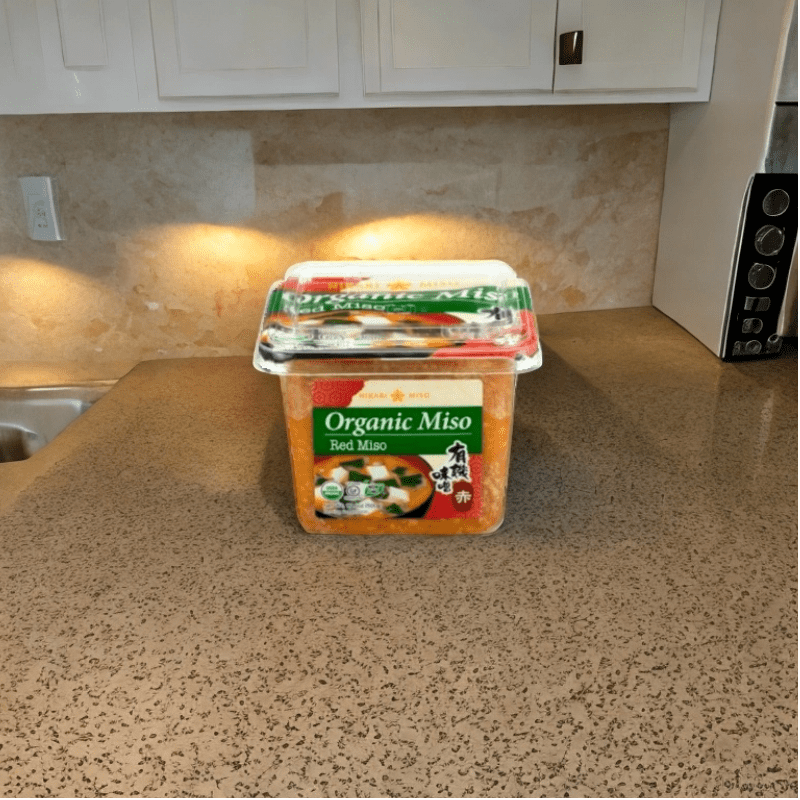
This Hikari the company behind this organic miso paste proudly proclaims on its website to be "Japan's #1 Organic Miso" and they also claim to be "world's most authentic miso" which is backed up with a 4.6 out of 5-star rating from 750+ real customer reviews.
The Hayashi family from Nagano Japan is said to be behind this number 1 most authentic miso brand. Their miso products do seem to be loved by thousands with some backing up the bold claims from the Hayashi family.
They sell organic miso, non-organic miso, and miso soup in case you don't want to make your own. They also have refined sodium miso and all of their pastes are USDA organic, gluten-free, and non-msg.
One tub of Red Organic Hikari Miso on the Walmart website is $40 and over on Amazon, it's currently out of stock. Both options cost a little bit more than some other Miso Pates but don't forget guys, they are Japan's number 1 organic miso paste.
4) Organic Aged Miso Paste by Namikura Miso
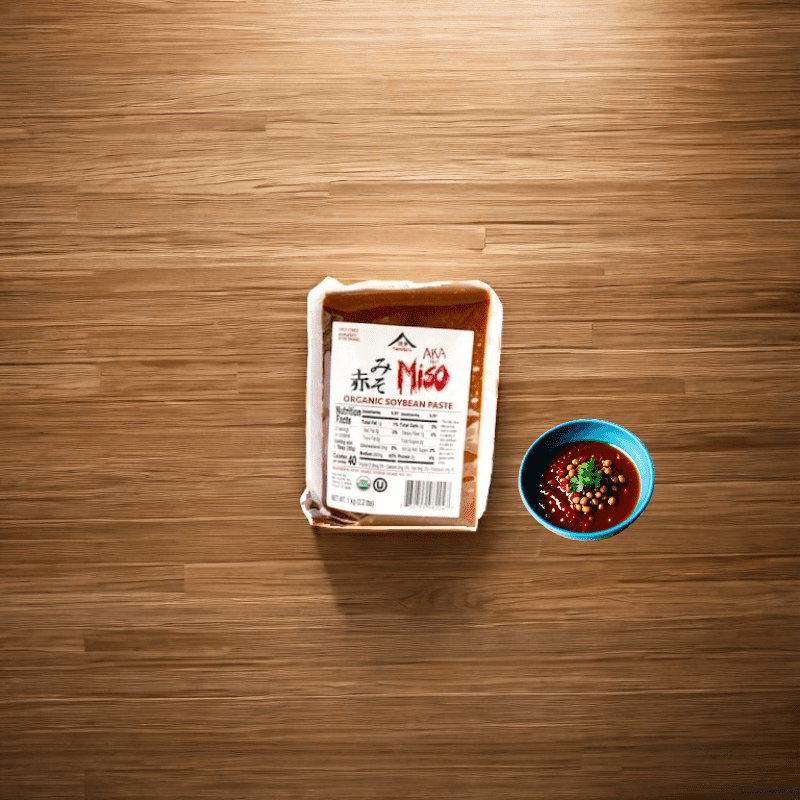
This miso paste is imported from Japan and they don't have any English language company website which adds to the authenticity. The Japanese family behind this miso paste claims to still source ingredients locally and still work on the day-to-day production.
The miso paste is dark red and is fermented for 6 months making it quite a strong option for those looking for probiotic bacteria.
I personally loved the taste and texture of this organic Miso Paste and it makes a delicious gut-loving miso soup. It's priced at $10.99 for 2.2lbs on IGourmet which isn't the cheapest compared to some other miso brands.
I was considering placing this miso paste in a higher position but Namikura Miso has only recently started selling in the USA and there aren't a lot of customer reviews yet for a rating.
5) Marukome 2-Year Fermented Miso Paste

The Marukome company claims to have 486 employees, has a HQ in the USA, and was founded in the year 1854. They have even created their own push-button Miso dispenser.
They currently have a miso paste that has been fermented for 2-years in the countryside of Nagano, Japan.
It's one of the cheapest options at only $11.98 for 300 grams but it's only available on their website. With the long fermentation period, this Miso is packed with good fungus and I imagine it packs a strong unique flavor.
6) TETSUJIN USDA Organic Deep Red Miso
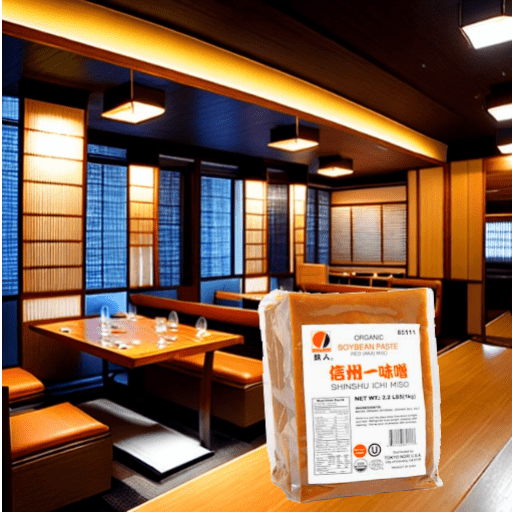
This Miso paste is said to be made in Japan but is made in China and I couldn't find any more information on the history of if they are a Japanese company or not. Some customers have complained about the packaging leaking during shipping.
This red miso paste has water, organic soybean, organic rice, and salt. Those are the listed ingredients but the ingredients label says it contains 2g of sugar per 1 tbsp. They have 4.5 out of 5 stars but only from 274 customer reviews.
It's currently $11.65 / $0.33 per ounce making it another low-cost option. It is only available on amazon so you will be covered by their refund policies if you have any issues. It contains no alcohol, is vegan, and no added msg.
What Is Miso Paste?
According to Misotasty.com, Miso Paste originated in China and was then introduced to Japan through mainland china by Buddhist Monks over 1,000 years ago. It was in Japan that Miso Paste took on different forms and evolved into that unique special flavor that we know today. Most people will have tried Miso Soup at some point in their lives and if not they have missed out. The ingredients in Miso Paste do vary but the main ones are:
Miso paste can either be red, white, somewhere in the middle, or even yellow according to some. The darker the Miso paste the longer the fermentation period has been and that means the miso paste will be more likely to have a stronger dose of probiotics. Different regions of japan also have their own unique miso.
TL;DR: The darker the miso paste, the stronger the taste while white miso paste tends to have a sweeter and lighter taste and yellow miso somewhere in the middle.
Final Thoughts
After months of testing and trying different brands, these six brands stood out to me as the best in terms of flavor, quality, and value. Of course, everyone's taste preferences are different, so I encourage you to try out different brands and find the one that suits you best.
Incorporating miso paste into your diet not only adds flavor to your meals but also provides numerous health benefits, such as improving digestion and boosting your immune system. So, why not give it a try and see how you can elevate your cooking and your health with miso paste?

Alicia Harper is a NASM-CNC Certified nutritionist and the editor of ProbioticReviewGirl.
After suffering from recurrent gut issues she spent years researching Probiotics and the microbiome.
She has tested 29+ different Probiotics and is a probiotics expert. As a probiotic fanatic, she has valuable knowledge to share with the world.